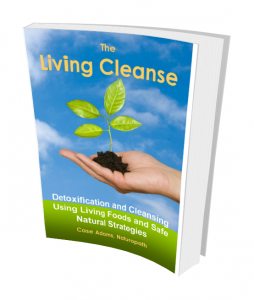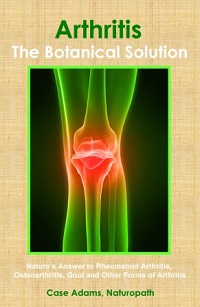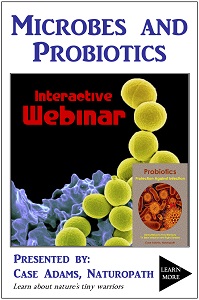Pesticides Increase Thyroid Disease Incidence
The Pandora’s box of adverse effects of pesticides and herbicides is coming to roost in a multitude of ailments. Now we find pesticides and herbicides significantly increase the risk of thyroid disease such as hypothyroidism.

Pesticides and herbicides increase the incidence of hypothyroidism and hyperthyroidism according to researchers.
In this article
Neurotoxic chemicals affect hormones
This may be obvious, but these chemicals are designed to kill life. There are a number of different types of pesticides, but most of them work as neurotoxins. This means they damage the nervous systems of insects, killing the insects in their tracks or flight paths.
Herbicides work in similar ways, but typically damage the metabolism of plants. This often means they ruin the plant’s ability to protect itself. They also work to kill the circulatory system of the plant.
These killing chemicals often have similar effects upon humans, except at a more subtle basis. Neurotoxic pesticides will also hurt the human nervous system, without necessarily knocking it out completely. This is why, for example, pesticides have been linked to nervous system disorders such as Parkinson’s disease.
But many pesticides and herbicides have an effect upon our body’s hormonal systems as well. These are also an indirect result of neurotoxic chemicals, because our secretion of hormones are synchronized by our brain and nervous system.
These neurotoxic chemicals also bind to hormone receptors, as we’ll discuss.
In particular, research is discovering that many pesticides and herbicides specifically reduce the secretion of thyroid hormones.
Thyroid hormones and health
Thyroid hormones are critical to our body’s metabolism. The primary hormones produced by the thyroid are triiodothyronine (T3) and thyroxine (T4), with T4 being the primary thyroid in the bloodstream, but T3 being the more active form. Much of the body’s T3 is converted from T4.
These two hormones regulate our body’s metabolism of vitamins, proteins, fats and carbohydrates. They also regulate our body temperature. Thyroid hormones affect every single cell in our body.
The thyroid’s production of these hormones is stimulated by another important hormone: thyroid stimulating hormone or TSH. Normal TSH levels range from between 0.3 to 5 mlU/L. Levels over or under this range are linked to hypothyroidism. This is because the thyroid is underactive and not utilizing the TSH to produce the T3 and T4.
When TSH levels are below the 0.3 range, the thyroid is considered overactive. This means it is utilizing too much TSH and producing too much T3 and T4 hormones.
Many women today have a condition called hypothyroidism. This means the thyroid gland is not producing enough thyroid hormones. Hyperthyroidism, on the other hand, means the thyroid is overactive and producing too much thyroid hormones.
Pesticides and hypothyroidism
A 2019 study from the University of Nebraska1 tested 35,150 men and women who had sprayed pesticides or herbicides. The researchers followed the men and women over a period of 20 years.
Pesticides tested included diazinon, malathion, dichlorvos, glyphosate, 2-4-D and others. They also included herbicides like RoundUp, which contains the glyphosate chemical.
The researchers found that the pesticides and herbicides increased their incidence of hypothyroidism by between 21 percent and 54 percent, depending upon the pesticide or herbicide used. Pesticides and herbicides tested included:
• Diazinon (organophosphate)
• Malathion (organophosphate)
• Dichlorvos (organophosphate)
• RoundUp (glyphosate)
• Dicamba
• Chlordane
• 2-4-D (phenoxyacetic acid) and others.
• Aldrin (organochlorine)
• Heptachlor (organochlorine)
• Lindane (organochlorine)
The most harmful chemical on the thyroid turned out to be lindane, at 54 percent. But the incidence of hypothyroidism was greatest among those who used chlordane the most.
The cases of hypothyroid also increased with age. Among those who were between 45 and 55 years old, the increased incidence among pesticide and herbicide applicators was 58 percent.
But among those between 56 and 65 years old, the incidence of hypothyroidism jumped to 97 percent higher (nearly twice the incidence compared to the general population). For those over 65 years old the incidence was 78 percent.
The researchers concluded:
“Our findings support associations between exposure to several pesticides and increased hypothyroidism risk.”
Farmer’s wives suffer thyroid disease
Another 2018 study on pesticides and thyroid conditions2 comes from the U.S. National Institute of Environmental Health Sciences. Here researchers followed 24,092 wives of conventional farmers for over 20 years.
Again the researchers found links between certain types of pesticides and thyroid diseases. The study found that several fungicides (including benomyl, maneb/mancozeb, and metalaxyl), and the herbicide pendimethalin, as well as parathion and permethrin pesticides were all linked with increased incidence of hypothyroidism.
The average increased incidence among the farmer’s wives ranged from 56 percent to nearly two-and-a-half times the general population.
Furthermore, some pesticides and herbicides increased the incidence of hyperthyroidism among the wives.
The use of these chemicals by their husbands increased the incidence of hyperthyroidism by between 35 percent higher and twice the incidence compared to the general population. These included diazinon (pesticide), maneb and mancozeb (fungicides), and metolachlor (herbicide).
Pesticides harm thyroid in real time
In 2016, researchers from Brazil studied 275 men and women3 who worked and/or lived on farms in Southern Brazil. The researchers collected blood samples during times when the farm workers were spraying, and also at other times when they weren’t spraying.
They also compared the farm workers’ levels of thyroid hormones in the blood with their longer-term exposure to pesticides on the farm.
The researchers found that during the spraying season, the working men’s TSH levels significantly increased. Those with higher lifetime exposure to pesticides also had increased TSH levels.
The researchers also found that higher TSH levels were associated with higher concentrations of many pesticides in their bloodstream.
Remember, higher TSH levels in the blood means the thyroid is underactive. It is not properly utilizing TSH to produce thyroid hormones.
Pesticides bind to thyroid receptors
A 2017 study from the University of North Carolina4 studied the interaction between a number of pesticides and thyroid receptors. Indeed, the researchers found 11 pesticides did bind with thyroid receptors, changing the way T3 was produced.
Pesticides are also linked to ADHD. Eating organic foods reduces our risk of cancer. This is also the key to reducing the risk pesticides have on thyroid disease.
Scientific References:
1. Shrestha S, Parks CG, Goldner WS, Kamel F, Umbach DM, Ward MH, Lerro CC, Koutros S, Hofmann JN, Beane Freeman LE, Sandler DP. Pesticide Use and Incident Hypothyroidism in Pesticide Applicators in the Agricultural Health Study. Environ Health Perspect. 2018 Sep;126(9):97008. doi: 10.1289/EHP3194.
2. Shrestha S, Parks CG, Goldner WS, Kamel F, Umbach DM, Ward MH, Lerro CC, Koutros S, Hofmann JN, Beane Freeman LE, Sandler DP. Incident thyroid disease in female spouses of private pesticide applicators. Environ Int. 2018 Sep;118:282-292. doi: 10.1016/j.envint.2018.05.041.
3. Piccoli C, Cremonese C, Koifman RJ, Koifman S, Freire C. Pesticide exposure and thyroid function in an agricultural population in Brazil. Environ Res. 2016 Nov;151:389-398. doi: 10.1016/j.envres.2016.08.011.
4. Xiang D, Han J, Yao T, Wang Q, Zhou B, Mohamed AD, Zhu G. Editor’s Highlight: Structure-Based Investigation on the Binding and Activation of Typical Pesticides With Thyroid Receptor. Toxicol Sci. 2017 Dec 1;160(2):205-216. doi: 10.1093/toxsci/kfx177.


















